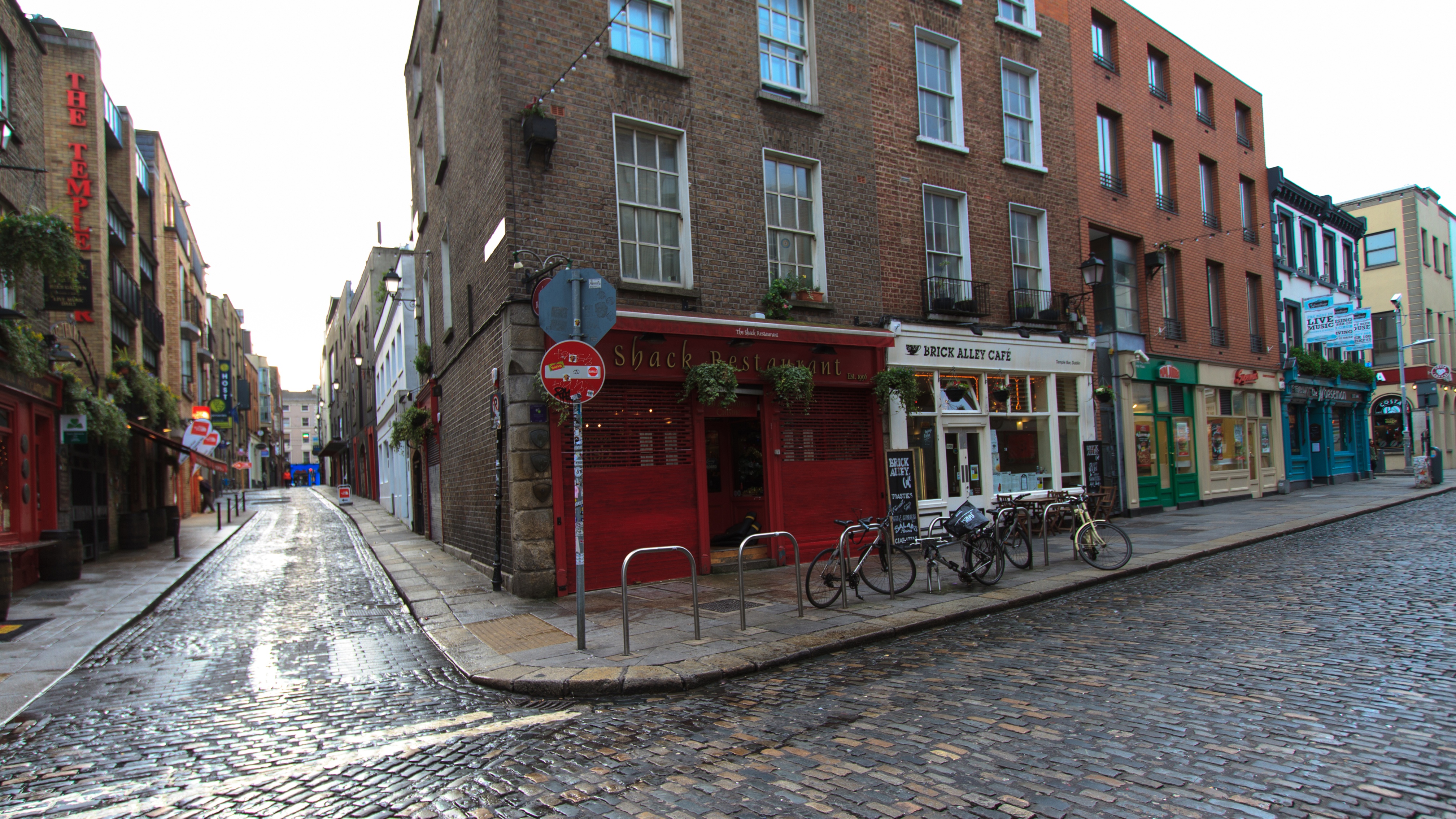'As my friend toppled over at the lights, I realised cycling home after the pub wasn't a good idea': Cycling, alcohol, and the law
Reformed post-pub rider Emmie Harrison-West explores the cultural and legal implications of cycling under the influence


The latest race content, interviews, features, reviews and expert buying guides, direct to your inbox!
You are now subscribed
Your newsletter sign-up was successful
Wobbling up to the traffic lights as they turned red, I managed to brake before I crashed into the back of my friend’s bike.
As our brakes squeaked in unison, we burst into peals of laughter. Our bodies shaking with the apparent hilarity of our bicycle choir.
We were half-cut and cycling home from the pub (please don’t tell my mam).
It was after lockdown, and we’d stayed at the pub until close - enjoying freedom (and fresh pints) a little too much. Amid the celebration, we’d forgotten we’d cycled there ‘only for one’ hours earlier.
“We’re not drunk drunk,” one of us said. I can’t remember who. We agreed that it was only a short cycle. That we were big girls, and it was too dangerous to leave our bikes chained up overnight in central London, anyway…

Emmie Harrison-West is a freelance journalist, editor and award-winning beer writer, who will be penning a column for Cycling Weekly every fortnight. You can find her cursing Edinburgh's cycle lanes on the way to the pub, or as @emmieehw on X.
And, as I was waiting for the lights to turn green, I remember smiling at how good it felt to be out again. To be slightly sloshed, happy and free with the people I loved.
That was until I watched, as if in slow motion, my friend topple over - bike and all.
The latest race content, interviews, features, reviews and expert buying guides, direct to your inbox!
She lay like a stunned baby in a capsized pram. Except, on this occasion, the ‘baby’ was a 20-something-year-old young professional underneath her bike in the middle of a road in Hackney.
Thankfully, there was only one car behind us - an impatient taxi driver - who I safely waved around the heap of aluminium and Lucy and Yak that was my friend.
I threw my bike down onto the empty, adjacent footpath, and lifted her own off her. She wasn’t hurt - I think her ego took the biggest hit, if anything.
As we collapsed onto the path together, we burst into laughter from shock and adrenaline. Safe to say, we pushed our bikes the rest of the way - deciding that we’d meet for brunch next time.
See, most of us wouldn’t dream of drink driving, but drink riding doesn’t carry quite the same social stigma.
Cycling home after social events seems to make sense. It’s free, healthy, safe (within reason), and it means you don’t have to be at the mercy of public transport.
Controversial beer bikes pepper European destinations popular with stag dos. Some breweries even sell their own cycling merch.
I’ve cycled home from the pub countless times. But since my friend toppled over, I’ve adjusted my limits. I’m well aware that the ending of our story could’ve been very different.
Cognitive function, judgement and reaction times are impacted by booze. Not to mention balance and coordination, too.
According to research, being intoxicated on your bike is also associated with more severe injuries, increased hospital resources and a higher mortality rate.
Inhibitions can go out of the window and you’re more of a danger to yourself, and potentially to others. It’s why I’ve learned never to drink and cycle on an empty stomach, and to keep my intake moderate if I plan to ride home.
It’s just not worth the risk to myself or other people.
But, is it illegal or - at the very least - frowned upon in the UK? Well, it’s a grey area…
According to the Road Traffic Act 1988, it’s an offence to cycle when you’re unfit to do so as a result of drink or drugs. And, it’s illegal for any road user not to comply with the Act itself.
The maximum penalty for cycling while under the influence is a £1,000 fine, which is the case for careless or inconsiderate cycling, too. The maximum penalty for dangerous cycling is a £2,500 fine.
Interestingly however, unlike drink driving, there’s no upper alcohol limit for drunk cycling, and although police may ask for a breath test, lawyers claim that cyclists can decline.
But, if it appears to police officers that you’re a danger to other road users and pedestrians, or don’t have control of your bike, you could face prosecution.
In America, it varies per state, but riding a bike while under the influence is illegal in most - and could land you a hefty fine or a DUI (driving under the influence) charge if you pose a danger to yourself or others.
Across Europe, legality varies dramatically, with some countries setting blood alcohol limits and others having no law at all relating to cycling drunk.
Looking at cycling’s oft-cited mecca, the Netherlands, cycling drunk is illegal. But, prosecution is rare. According to locals, if you do something really stupid, you could face a fine of up to €200 or be banned from cycling for a few hours (god forbid) while you sober up.
So much is invested in safer cycling infrastructure in the Netherlands, that it’s intertwined in the country’s very culture. While it’s not OK morally-speaking, it’s basically second nature. But infrastructure isn’t quite so tailored towards keeping cyclists safe in most parts of the world, the UK and US included.
Wherever you live, the most important thing is to know your limits. Would you drive in the state you’re in? If the answer is no, then you probably shouldn’t cycle, either.
Sometimes it’s better to leave the bikes at the pub and save the pedal power for brunch, instead. It’s not worth the bruised ego, or knees.

Emmie Harrison-West is a freelance journalist, editor and award-winning beer writer. You can find her cursing Edinburgh's cycle lanes on the way to the pub, or as @emmieehw on X.